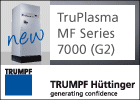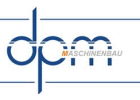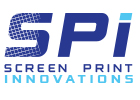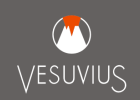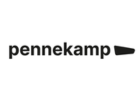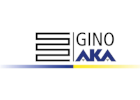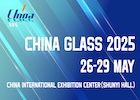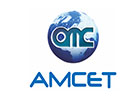Newly developed mini data loggers allow glass producers and filling companies to carry out line inspections in the original container in direct contact with the filling material.
This allows unrestricted passage through the entire production line. In filling plants for beverages, food or pharmaceutical products, damage to the container or even glass breakage can occur during the filling process. Even during production at the glass company or during transport to the filling company, damage can be caused to the glass at an unknown point or period of origin.
Mini data loggers detect loads quickly and precisely, even in the bulk
The mini data loggers newly developed by IGR – Institut für Glas- und Rohstofftechnologie GmbH in cooperation with the Swiss measuring technology company MSR Electronics GmbH allow the recording of accelerations in the form of shocks, impacts, and vibrations in the original filled glass container by means of high-resolution sensors. The records provide information about the (external) influences to which the glasses and bottles are exposed during filling, packaging, transport, and storage. The data obtained in this way serves the glass and filling industry both for damage assessment and for process optimization. In previous practice, some bottlers already used data loggers in the form of bottle dummies that pass through sections of the filling line and record acceleration data.
The disadvantages of this procedure are the cost-intensive production of one dummy per glass form and the different behaviour of original glass bottles compared to acrylic dummy bottles. While the behaviour of the glass bottle on the filling line changes when progressing from the unfilled to the filled state, it always remains the same for the dummy. However, it is very important to differentiate between these two states, as the measured values of the acceleration change significantly depending on whether the glass container is empty or filled. Furthermore, when data is collected using a dummy, it is not possible to measure the complete route, as the dummy has to be removed manually before the rinser and filler stages, for example, and then inserted again. The measurement results from this section are, therefore, missing.
Flexible silicone housing allows measurements in both narrow and wide-neck glasses
To avoid this problem, IGR – Institut für Glas- und Rohstofftechnologie GmbH in cooperation with MSR Electronics GmbH has developed individually configurable data loggers which make the use of dummies redundant. The "MSR175B4", "MSR165B4", and "MSR160B4" data loggers in silicone tubing are waterproof, insensitive to temperature and pressure, and can be used variably in both original narrow or wide neck glass containers. They are designed for direct contact with the filling products and can run through the entire production or filling line under real conditions, recording all the required data.
Record acceleration up to 6400 times per second
In the following section we provide some technical data of the three data logger variants currently available: The "MSR175B4" has two internal 3-axis accelerometers with measurement ranges of ± 15 g and ± 200 g and records shocks at a measuring rate of up to 6400 Hz. The measuring intervals can be set manually. The storage capacity of over 2 million measured values is sufficient for recording at least 1000 shocks over a measuring period of up to eight weeks.
The "MSR175B4" also stores temperature curves from -20 to +65 °C. A brief rise in temperature during pasteurisation or use in the dishwasher does not restrict the data logger's function. Optional equipment is available with each variant as follows: internal temperature, humidity (0 to 100 % rel. humidity), pressure (0 to 14 bar), and light sensor (0 to 65000 lx), currently with a measuring rate of 10 min. The "MSR165B4" has one internal 3-axis accelerometer with a measurement range of ± 200 g (optional ± 15 g) and a measuring rate of up to 1600 Hz. The storage capacity of over 2 million measured values is sufficient for recording at least 10000 shocks over a measuring period of up to six months.
The "MSR160B4" data logger is equipped with a 30 bar pressure sensor with a maximum measuring rate of 1000 Hz. This can be used, for example, to determine pressure differences that occur in filled bottles due to shocks. All three MSR data loggers in silicone tubing comply with the EU RoHS/WEEE directive. The current outer diameter of the data loggers is only 19.5 mm. An optimization of the outer diameter to approx. 16.5 mm, which, for example, allows their use in all common mineral water or beer bottles, is currently under development. Application example:
Data logger for line inspection in beverage bottling plants
If the data logger is to be used for line inspection in a bottling plant, an original bottle is prepared in advance at the IGR or directly on site at the plant. The respective data logger is inserted through the (bottle) neck and then fixed, so that its position remains unchanged during the entire measurement. After the data logger has run through the line several times and any visually detected weak points have been additionally tested, the evaluation is carried out using MSR ShockViewer software and then classified in IPS (inches per second). In their function as shock loggers, the "MSR175B4" and "MSR165B4" record accelerations.
Accelerations are measured in m/s² or in g. The classification of these values into the unit IPS (inches per second), commonly used in the glass industry, is done by an appropriate calibration at the IGR or at the user's site with the original glasses and original filling material by means of a pendulum impact device. By fixing the data logger in the bottle, it is even possible to determine afterwards in which direction (horizontal or vertical) the load was applied. A pre-evaluation is possible directly on site and thus an immediate re-examination of desired line parts.
It is also possible to leave the logger in the bottle for several weeks after the filling process has ended to record the transport to the warehouse and any movements there. To retrieve the bottle prepared with the data logger, itself and the packaging unit in which it is located are marked on the outside. On the one hand, this guarantees visual Seite 3 von 4 Institut für Glas- und Rohstofftechnologie traceability during data collection and, on the other hand, the marking prevents the prepared bottles from being accidentally put on the market.
In addition, MSR Electronics GmbH is currently developing a new procedure that will enable the data loggers to be retrieved using radio technology. This allows continued contact with the logger in the bottle during packaging and transport, even if it is left in the bottle for a longer period of time. Furthermore, access to the prepared bottle is always possible.
Calibration, preparation, measurement, and data evaluation by IGR
It is recommended that the initial installation of the "MSR175B4", "MSR165B4", and "MSR160B4" data loggers in silicone tubing be carried out and accompanied by an IGR employee so that visual or acoustic abnormalities or faults in the system can be compared with the data logger measurements during the run, and recorded events can be verified immediately. The evaluation of the read-out measurement data by the IGR, and their preparation in a separate test report, is particularly useful when using the data logger for the first time.
At present, data evaluation is carried out subsequently and can be carried out directly on site. Real-time evaluation is currently not possible due to the amount of data and the required classification in IPS. In addition to calibration, preparation, measurement, and data evaluation, the IGR offers training in the proper handling of the data loggers and data evaluation using the MSR software.
Data loggers are helpful in identifying cost saving opportunities
The use of data loggers as control instruments is not only of interest to filling companies. At a container glass production site, for example, the data logger recordings can provide important clues for optimizing shapes and weights, especially with regard to cost saving potentials. And, in the pharmaceutical industry, especially when using amber glass bottles which guarantee high opacity, the use of data loggers also makes sense. Here, light and temperature measurements can be used to ensure or prove that the contents have not been exposed to sunlight during packaging, storage, and shipping.
In principle, the "MSR175B4", "MSR165B4", and "MSR160B4" data loggers can be configured to suit the specific conditions of the location in question, allowing them to be used worldwide for the inspection of lines at glass producers as well as by bottling companies and the like, who fill and transport both narrow- and widenecked glass containers. The worldwide sale of the "MSR175 in silicone tubing" is handled exclusively by IGR - Institut für Glas- und Rohstofftechnologie GmbH.





